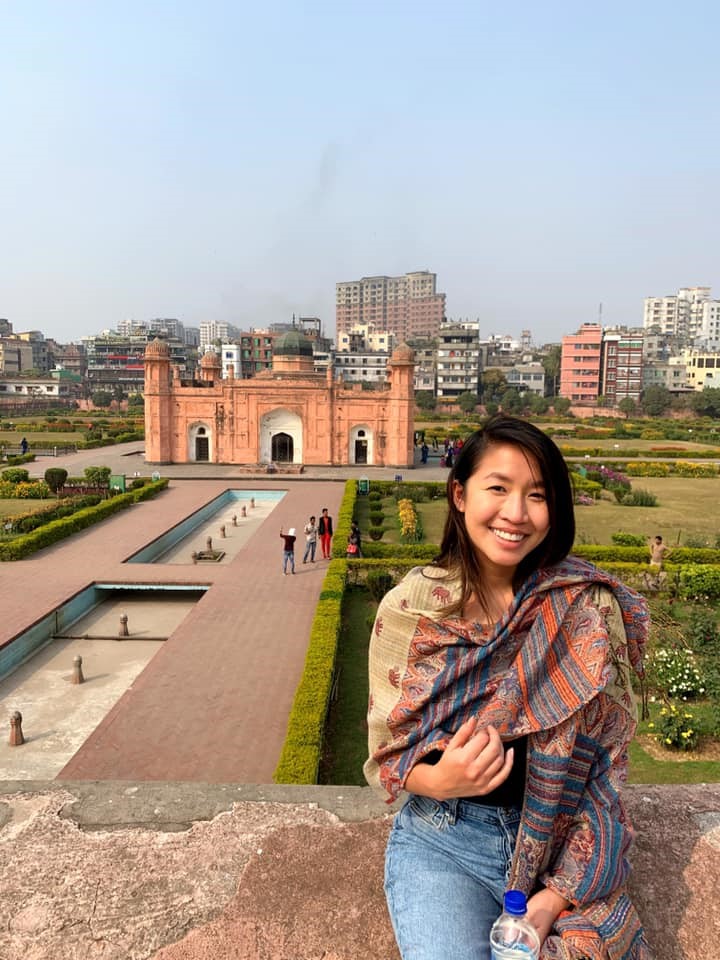This is a continuation of our "IANR is Global" series, which highlights the many ways internationalization is woven through the Institute of Agriculture and Natural Resources: through research collaboration, government and private industry partnerships, extension work, student educational experiences and the IANR community from around the world.
This edition is specifically focused on the many global voices we have or have invited to campus who will be sharing their expertise through seminars during spring semester 2021. Vivian Nguyen is an international development practitioner for The Kaizen Company in Washington D.C. and a double alumna of the University of Nebraska-Lincoln, including from the School of Natural Resources. Vivian will be participating in a panel discussion entitled “Naming The Beast: Youth Climate Action” as part of the E.N. Thompson Forum on World Issues Tuesday, February 23 at 7:00 p.m. We appreciate the expertise we are fortunate to have from all over the world, as shown by their many and varied contributions to the work of the university and our continued mission to create a globally engaged institution. To this end, we want to help our campus community get to know each other (and the world) more, starting with these experts.
Where is home for you? Where did you receive your education? While my studies and career have taken me all across the world, Nebraska will always be home. I was born and raised in Lincoln, so naturally, I chose to be a Husker - twice! I graduated with my BS in Environmental Studies in 2014 and earned my MA in Political Science in 2018.
Tell us a little about your path to where you are now.
My path was not straightforward at all. I went where the wind took me. I dabbled in different environmental fields i.e. waste management, sustainability, wildlife, forestry, and environmental education. After a year serving as an AmeriCorps with the Nature Conservancy in Arizona, I realized that if I wanted to make a really big impact, I would need to know more about how to develop policy. So I decided to get my master's in political science.
After I graduated with my master's, I worked for the Daugherty Water for Food Global Institute (DWFI). In this position, I had the privilege of working with students from the Rwandan Scholars Program, also known as CUSP. Together, we researched innovative and scalable business models for irrigation in Rwanda. We also started Future Agriculture Leaders, an agriculture entrepreneurship camp for high school students across Rwanda. With my experience, with DWFI, I wanted to grow my passion for international development and moved to Washington, D.C. I now work at the Kaizen Company, at the Partnerships Incubator, a global service hub to amplify and expand the U.S. Agency for International Development's (USAID) mission and capacity to work with diverse and local partners.
What is something people don't know (or that you wish they knew) about where you're from or where you do your international work?
Wherever I go, people always ask me what Nebraska is like. I always surprise them by telling them we have a rich history of welcoming refugees into the State. In fact, in 2018, Nebraska led the country in resettling the most refugees per capita.
My Vietnamese parents benefitted greatly from this welcoming state and my life was enriched by growing up around people who spoke different languages, ate different foods, and celebrated different holidays. It definitely shaped my view of the world.
Are you currently engaged in any international collaborations?
Presently, approximately only 70 organizations receive 80 percent of USAID's funding. This means that U.S. funding for international development is not often going directly into the hands of local organizations, but large Western development organizations. At the Partnerships Incubator, we are working to shift the paradigm to focus on local organizations and local experts. We work directly with USAID to reduce the barrier to partnership and streamline access to resources. We do this by providing training, capacity-building assistance, and developing tools and resources to support local partners. Visit workwithUSAID.org to learn more.
Why is it important for institutions like the University of Nebraska to create opportunities to hear from people with diverse, global experiences?
Nebraska may be the "good life", but there is so much more to learn outside of our state borders, and there is a lot the world could learn from Nebraska.
What is one piece of advice you would share with students, especially those interested in an international career?
Try things that scare you.
Be sure to tune into the panel featuring Vivian and other youth leaders at 7:00 p.m. CST on Tuesday, February 23.
---
Are you giving a seminar in spring 2021 (or the future) and have an international element to your work, studies or experiences you'd like to see highlighted? Contact Brianne at bwolf4@unl.edu.
